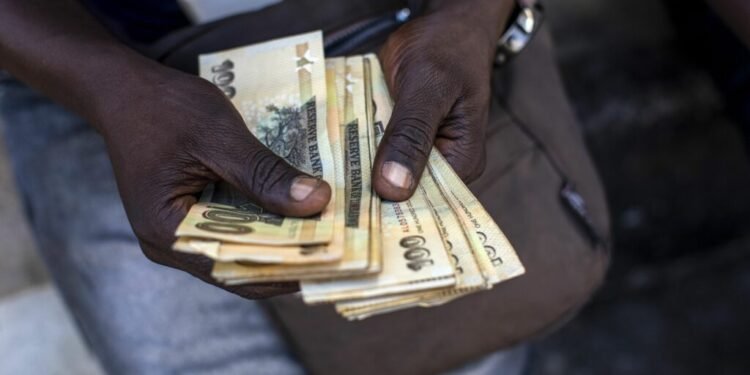Zimbabwe plans to keep its local dollar, a currency that has lost value every single trading day of the year, even as fiscal and monetary authorities work on new plans to revamp the currency, according to Finance Minister Mthuli Ncube.
“We will have a domestic currency, there will always be a domestic currency so there is no way that we cannot have one,” Ncube said in an interview Saturday in Zimbabwe’s second biggest city of Bulawayo. “It’s very important to have a domestic currency so that we don’t just rely on foreign currency only for transactions.”
Currently, the US dollar is used for 80% of all commerce in the country. Citizens use the greenback to pay for everything from food, to fuel and medicines. Keeping the domestic currency will help the southern African nation to continue conducting monetary policy, Ncube added.
ADVERTISEMENT
CONTINUE READING BELOW
On Friday, the Zimbabwean dollar breached another significant threshold, dropping below 20 000 against the US dollar after its decline past the 10 000 level in late January, according to data compiled by Bloomberg. Authorities have not intervened to halt its drop so far, fueling speculation the local currency is on its way out.
Zimbabwe has the world’s highest benchmark interest rate at 130%. It re-introduced its monetary policy in late 2019 after the local dollar was reinstated the same year after a decade-long hiatus.
“We can only have monetary policy as a macro-policy if you have your own domestic currency,” said Ncube. “We will have a domestic currency.”
The delay in the release of a monetary policy statement is due to ongoing consultations with experts within the government and other stakeholders on the currency revamp as authorities seek their “thumbs up,” he said. Previously, Ncube has hinted authorities were weighing the use of gold to back the currency.
“What you are calling delays is really not delays. It’s that we want to make sure that we get things right,” he said.
The Zimbabwean dollar has lost 70% of its value against the greenback since the year began, making it one of the world’s worst-performing currencies.
Meanwhile, the country expects to engage in a staff-monitored program run by the International Monetary Fund in June. It will last for 12 months. Last month, the IMF urged authorities in Zimbabwe to fully liberalise its exchange rate, warning that the currency’s continuing depreciation could pose a risk to economic growth.
The currency is the main sticking point that will be dealt with through the monetary policy statement, and the country has already put in place other reforms, added Ncube.
“The elephant in the room in terms of economic reform is currency,” he said.
© 2024 Bloomberg










